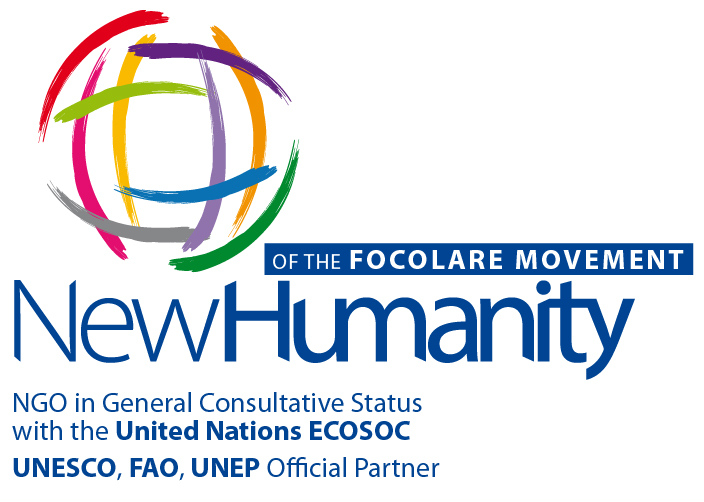Why are young Westerners attracted to follow groups like ISIS? Can we answer this challenge?
Last October, three girls from Denver, Colorado — 15, 16 and 17 years old — sneaked away from school. They didn’t spend the day at the mall, watching a movie, or just hanging out together. No, they boarded a plane to travel to Syria, to join ISIS (Islamic State in Iraq and Syria). If they hadn’t been stopped in Germany and brought home to their parents, who knows where they would be and if they would even still be alive. Like them, an increasing number of minors and young adults from Westernized nations are leaving everything behind to join the war, and the question remains: why?
The attraction, support and success for ISIS is alarming and not easy to understand. Where does the fascination with the cruel, violent group come from? And is this really an expression of Islam?
There is no simple answer to this complex reality intertwined with political, social, economic, cultural and religious roots. Globalization and the information age have contributed to tensions between centuries-old religious and cultural traditions and the modernized world, and these tensions threaten the identity and the collective, trusted depository of truth and values of many.
In the face of certain Western values that most greatly challenge traditional religious identity, religious groups in many countries may seek to return to their roots for guidance. In this sense, ISIS too — faced with the individualism, pleasure-seeking and an “everything goes” mentality of the West — is no different. According to Alastair Crooke, founder of Conflicts Forum and noted advisor on Middle East issues to the European Union, ISIS finds its roots in the teachings of Islamic scholar Abd al-Wahhab (1703–1792). Al-Wahhab “demanded that all Muslims must individually pledge their allegiance to a single Muslim leader. Those who would not conform to this view should be killed…
The list of apostates meriting death included Shiite, Sufis and other Muslim denominations whom Wahhab did not consider to be Muslim at all… He reintroduced the idea of martyrdom in the name of jihad, as it granted those martyred immediate entry to paradise,” said Crooke. In essence, he proclaimed a path to seizing power.
ISIS says that they want to go back to this pure Islam. This message falls on fruitful soil in the Middle East, where some governments tried to suppress extreme Islamic groups from having a place in the political structure. This has led to anger and convinced some believers that the best solution is to support ISIS to “purge what they view as a corrupt society,” according to Diarmaid MacCulloch, professor of theology at Oxford University in England. “Terrorism is an act of desperation used by people who feel there isn’t an alternative,” he continues.
However, ISIS — more than similar terror organizations such as Al Qaeda and Boko Haram — has also recruited middle-class people, appealing to their sense of outrage against the ills of modern society. They do this by describing their goals with the vocabulary and in the context of religion. Growth of unemployment among the educated also often creates a class of frustrated achievers, who may become radicalized militants. This may be a reason for the hundreds of second-generation Muslim immigrants to the U.S. and Europe to turn radical, like the three girls from Colorado who are originally from Sudan and Somalia.
They may feel that their being Muslim and children of immigrants may hinder them to be fully accepted in the countries their parents chose to raise them. This indicates the need for initiatives that better help families to integrate and that foster dialogue to prevent these feelings. Personal relationships might also prevent young Muslims from believing in the propaganda of ISIS, professionally made and spread on social media. Their media-savvy message appeals to their desire to give their lives for something greater than themselves, depicting war as a romantic adventure.
The use of religious feelings
In an interview granted to the Guardian in December 2014, a disillusioned senior official of ISIS shed some light on why people are attracted to join, which was far from being religiously motivated: “Life with ISIS means power, money, wives and status, all attractive lures for young firebrands with a cause…” Though no longer in agreement with the brutal vision of the group, he believes he has no other options but to remain, because leaving would mean that he and his family would be killed.
The ISIS phenomenon remains difficult to decipher, but one thing is sure: it would be short-sighted and unfair to strictly identify it with Islam, as is so often portrayed in the media. A fact often left out is that, alongside cruelty toward Christians and Yazidis, ISIS also acts violently against Muslims and their places of worship. It has been estimated that since the proclamation of the new caliphate by ISIS, hundreds of Muslims have been killed, too, either because they are Shiites or because they are members of other Islamic minorities, or because they are not ready to submit to the new rulers.
Some Muslim countries have declared ISIS followers as outlaws on their territory, and have since been trying to prevent its citizens from joining the group. Among them is Indonesia — the nation with the largest Muslim population in the world.
Then, there is the discrepancy between terms used by terrorists and their original meanings in Islamic tradition. Jihad, for example, is often translated as “holy war,” but originally means “an inner spiritual struggle (the ‘greater jihad’), and an outer physical struggle against the enemies of faith (the ‘lesser jihad’).” The Lebanese Shiite leader Ibrahim Shamseddine, a former Minister of the Republic of the Cedars, told the magazine Oasis, “The Islamic jihad is something important to us, but almost everyone has abused it. Killing is not jihad. Killing Christians, Muslims, or people of other religions is not jihad. This is against Islam. It is pure murder, a human carnage.”
Responding with peace initiatives
The questions remain: how can the Islamic world deal with the terrorism done in the name of their faith? How can young people looking for meaning in their lives find it in positive choices like peace and dialogue instead of joining a so-called holy war?
It is possible to de-radicalize young people — the initiative of Paiman Trust, founded at the end of 2008 by a Pakistani woman named Mossarat Qadeem, shows this. She wants to reach out to youth at the border of Afghanistan who are in danger of radicalization or who have already been radicalized. Her group has tried several approaches and is realizing that it takes the whole community to get these young men out of extremist circles.
First she reached out to the women in communities, offering them work, “because if they earn something, they can ask questions, their voice will be heard,” she said at an April high-level debate held at the General Assembly of the UN. Only then can they ask their sons where they have been and who their friends are. In a second step, she meets with the young men, showing them Quranic texts in their original context, showing them that the extremist groups are giving them only isolated snippets to further their cause.
“We transformed their hearts and minds, we taught them love for themselves, love for their families and their communities,” she said. With this approach, Paiman Trust has been able to de-radicalize more than 900 boys, a success rate of 99.7%. “Only three boys went back to join the Taliban,” she said.
Other initiatives around the world, from interfaith youth camps to social projects where believers of different faith traditions come together, are also offering another narrative. There are people like Samuel Kwasari from the Focolare community in Nigeria, whose parents’ village was attacked by the Nigerian Islamic terrorist group Boko Haram. Affected by the turmoil, his father died. “If you look at the circumstances, one is likely to think that this is a kind of personal fight or war between Muslims and Christians. But I can particularly say that this is not true, because while I was in school I met a friend who happens to be a Muslim, and until I was finished with my studies he was my best friend … It is only God that can heal our hearts,” said Kwasari in video interview.
Regarding the question of preventing young people from following ISIS, in the end the answer depends on whose message is more credible and attractive: that of the terrorists, which leads to violence and war, or that of people who work with determination for dialogue and peace.
With Roberto Catalano and Susanne Janssen



